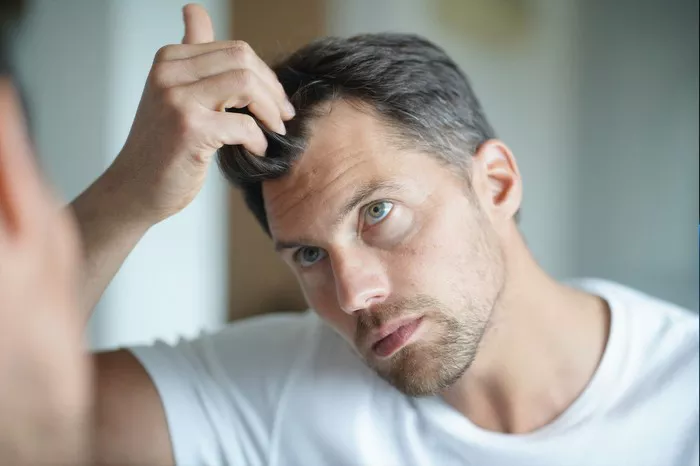Hair loss can be a distressing experience for many individuals, and its causes are often multifaceted. While genetics, hormonal changes, and other factors play significant roles, vitamin deficiencies can also contribute to hair loss. In this article, we will explore the vital vitamins that, when lacking, may be linked to hair loss and how addressing these deficiencies can promote healthier hair growth.
1. Vitamin A: The Balancing Act:
Vitamin A plays a crucial role in promoting a healthy scalp and supporting hair growth. However, an excess of this vitamin can have adverse effects, including hair loss. Striking the right balance is essential. Ensure you consume an adequate but not excessive amount of vitamin A through foods like sweet potatoes, carrots, spinach, and kale.
2. B-Vitamins: The Hair Health Warriors:
The B-vitamin complex, including Biotin (B7), Niacin (B3), and Cobalamin (B12), is instrumental in maintaining healthy hair. Biotin, in particular, is often associated with hair growth and is found in foods like eggs, nuts, and whole grains. Niacin improves blood circulation to the scalp, while Cobalamin helps in the formation of red blood cells, promoting oxygen delivery to hair follicles.
3. Vitamin C: Collagen and Hair Strength:
Vitamin C is not only essential for overall health but also plays a role in maintaining the strength and integrity of hair. It aids in the production of collagen, a protein that provides structure to hair strands. Incorporate citrus fruits, strawberries, and bell peppers into your diet to ensure an ample supply of vitamin C.
4. Vitamin D: Sunlight and Hair Growth:
Vitamin D is crucial for maintaining a healthy immune system, and its deficiency has been linked to hair loss. Exposure to sunlight is a natural way to boost vitamin D levels. Additionally, include vitamin D-rich foods such as fatty fish, fortified dairy products, and egg yolks in your diet to support hair growth.
5. Vitamin E: Antioxidant Defense:
As a powerful antioxidant, vitamin E helps protect hair follicles from oxidative stress, promoting a healthier scalp and hair growth. Nuts, seeds, spinach, and avocados are excellent sources of vitamin E. Ensure your diet includes these foods to maintain optimal levels of this vitamin.
6. Iron: Oxygen to the Roots:
Iron deficiency, often linked to anemia, can result in hair loss. Iron is essential for the proper function of red blood cells, which carry oxygen to hair follicles. Include iron-rich foods like lean meats, beans, and leafy greens in your diet to prevent iron deficiency-related hair loss.
7. Zinc: Building Blocks of Hair Cells:
Zinc plays a crucial role in hair tissue growth and repair. A deficiency in zinc can lead to hair shedding and thinning. Include zinc-rich foods such as oysters, nuts, and seeds in your diet to support healthy hair cell development.
8. Omega-3 Fatty Acids: Nourishing the Scalp:
Omega-3 fatty acids contribute to overall scalp health, promoting an environment conducive to hair growth. Fatty fish, chia seeds, and flaxseeds are excellent sources of omega-3s. Including these foods in your diet can nourish your scalp and contribute to thicker, healthier hair.
9. Vitamin K: Supporting Hair Elasticity:
Vitamin K is essential for blood clotting and bone health, but it also plays a role in maintaining hair elasticity. While vitamin K deficiency is rare, including leafy greens, broccoli, and Brussels sprouts in your diet ensures you meet your body’s vitamin K needs.
10. Consultation with a Healthcare Professional:
If you suspect that vitamin deficiencies are contributing to your hair loss, it’s crucial to consult with a healthcare professional. They can conduct tests to identify specific deficiencies and recommend appropriate supplements or dietary changes. Self-diagnosis and excessive supplementation can have adverse effects, so seeking professional guidance is essential.
See Also: Top 5 Vitamin Tablets for Hair Growth: A Full Guide
Conclusion:
Understanding the relationship between vitamin deficiencies and hair loss is a crucial step in addressing and preventing this common concern. By incorporating a well-balanced diet rich in essential vitamins and minerals, you can nourish your hair from the inside out and promote healthier, stronger hair growth. If you experience persistent or severe hair loss, seeking guidance from a healthcare professional ensures a tailored approach to address your specific needs and promote optimal hair health.


